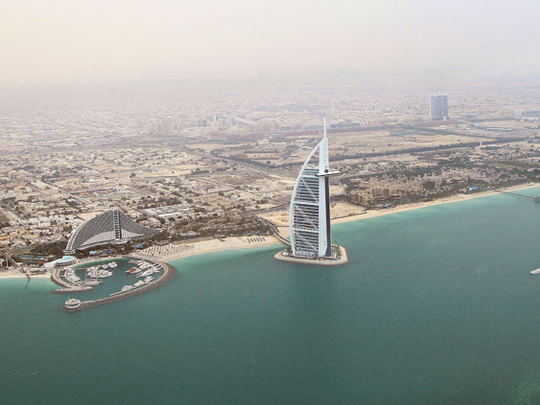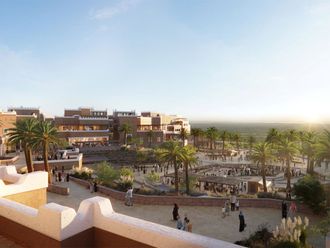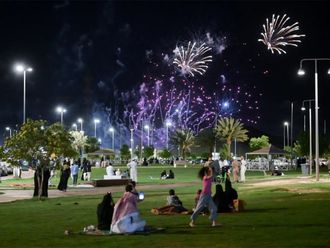
Dubai: Hotel operators are in talks to open hotels at the Dubai Design District (D3) — one of the emirate’s latest retail projects — and luxury hotel group Jumeirah is joining the fray.
The district, which was announced in June last year is expected to position Dubai as a fashion capital. It will be located adjacent to the Business Bay area, and will play a role in developing the emirate’s fashion, design and luxury sectors.
In a radio interview on Monday, Gerald Lawless, president and chief executive of Jumeirah, said that the Dubai-based group is “talking with [Tecom Investments] about the operation of maybe more than one hotel” in D3. Jumeirah declined to provide additional details when contacted by Gulf News. Lindsay Miller, managing director of D3, told Gulf News in a phone interview on Monday that the company has been in talks with international hotel chains and niche, design-led boutique hotels. Although she did not disclose the names and number of hotel operators that are looking to have properties on the site, she did say they exceed the number of the project’s dedicated hotel plots, which stand at 14.
Miller, too, did not state how many hotels Jumeirah is considering to have at D3, except to say that Tecom “has not gotten to that stage of discussion.”
D3, which will be developed and operated by Tecom, includes four phases. According to Miller, the project will be completed before 2020. She did not say what the total cost will be.
Phase one of the project is already under way and is set to be completed in January next year. It will include 10 commercial buildings, and will cost Dh4 billion.
Second phase
Work on the second phase, or the ‘Creative Community’, will follow in the same year and is expected to be completed by late 2016 or early 2017, according to Miller. She, however, declined to provide the cost of the second phase. It will cover an area of 600,000 square feet located on Financial Centre Road. A Tecom-owned commercial building, which is 20 per cent complete, is currently being demolished to make room for studios, creative offices and food and beverage outlets to target the “emerging creative community,” Miller said.
Meanwhile, phase three, called the ‘Waterfront’, will include a 2km stretch of hotels, retail outlets, sporting and cultural facilities (including an art and design museum and an open-air amphitheatre) alongside a creek-side promenade, she said. It is set for completion in 2018.
Tecom, which like Jumeirah is a member of Dubai Holding, has been accepting space bookings for D3 for various types of use, such as creative offices and workshops. There are over 160 companies, both locally and internationally-based, that are licensed or have applied for a license to operate in D3, Miller said.
The focus of Dubai’s activity has shifted towards the retail and hospitality sectors, the local economy’s two standout sectors, as development ramps up in the lead up to the World Expo 2020, which Dubai won the bid to host last November, according to real estate consultancy Cluttons.
Dubai represents around 60 per cent of the UAE’s luxury market and 30 per cent of the Middle East market, according to Bain and Company data.
Jumeirah’s other projects
Jumeirah’s projects are progressing well. Thee fifth phase of Jumeirah Beach Hotel expansion, which is set for completion in 2018, will include an additional luxury resort to the existing hotel, which will comprise 350 rooms, a new private beach, recreational marine facilities and food and beverage outlets.
Meanwhile, work on the fourth phase of Madinat Jumeirah is in progress and is expected to be completed in March 2016.
Jumeirah has 15 properties in its development pipeline, which are expected to open in the next three years.












